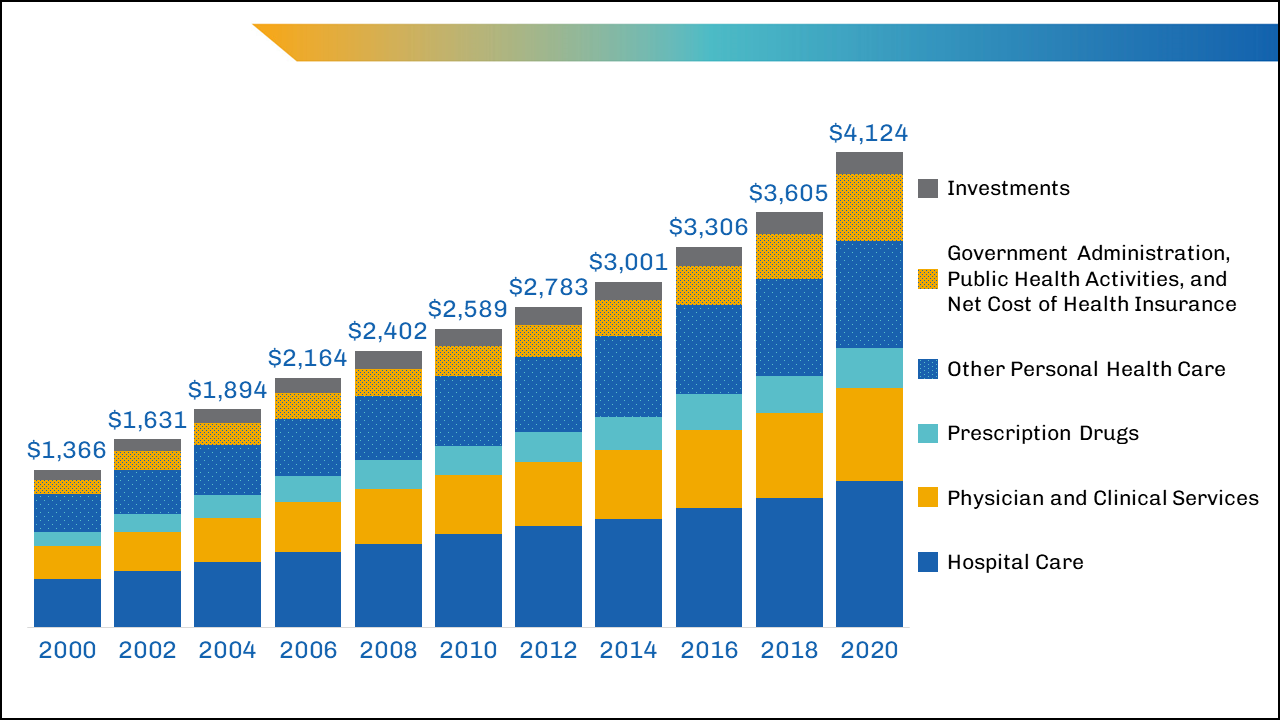The Importance of Healthcare RCM in Enhancing Cash Flow and Efficiency
Discover How Healthcare RCM Processes Transform Administrative Tasks Into Seamless Procedures
In the ever-evolving landscape of medical care, Profits Cycle Administration (RCM) processes have actually emerged as a critical force in changing administrative jobs right into seamless procedures. By using innovative modern technology and fine-tuned methodologies, RCM supplies an advanced method to managing person registration, billing, and asserts handling. These advancements not only lower mistakes and enhance performance however also speed up money circulation and raise individual satisfaction. Nevertheless, what exists below the surface area of this transformative shift? What complex mechanisms and methods are used to guarantee such smooth integration? The solution to these inquiries are important for recognizing the future of healthcare management.
Understanding Healthcare RCM
Income Cycle Administration (RCM) in health care is a critical process that ensures the financial health of medical institutions by supervising the whole lifecycle of person service income. It incorporates numerous management and medical features, starting from the first scheduling of a medical visit to the ultimate collection of repayment for services rendered. Healthcare RCM. RCM is pivotal in managing the intricacies of payment and repayments, making certain that doctor receive settlement for their solutions effectively and precisely
A comprehensive understanding of RCM involves acknowledging the several components that make it effective. Trick elements include person organizing, insurance coverage verification, cost capture, insurance claim submission, and settlement uploading. Each of these aspects requires thorough interest to detail and robust systems to mitigate mistakes that can cause income loss. Additionally, RCM is not exclusively regarding monetary collections; it likewise aims to boost person complete satisfaction by reducing payment errors and enhancing transparency.
The performance of RCM rests upon the seamless assimilation of technology and human resource competence. Using advanced software program solutions allows medical care institutions to automate repeated jobs, therefore decreasing management worries. Additionally, qualified workers are crucial in navigating regulative demands and payer plans, ensuring compliance and enhancing earnings recuperation.
Streamlining Individual Enrollment
Simplifying patient registration is an essential action in enhancing the effectiveness of health care earnings cycle monitoring. It entails optimizing the initial interaction between patients and doctor to ensure a smooth information collection procedure. Trick parts consist of the accurate capture of individual demographics, insurance policy confirmation, and approval procurement. By digitizing these procedures with integrated electronic health records (EHR) systems, medical care centers can lessen mistakes, decrease paperwork, and expedite patient throughput (Healthcare RCM).
Automated systems assist in validating insurance policy eligibility in real-time, which not only lowers administrative burdens but additionally improves person satisfaction by stopping unanticipated billing problems. Additionally, pre-registration processes allow people to total forms on-line before their see, minimizing delay times and making it possible for staff to concentrate on more complicated tasks. This aggressive method makes certain that all needed information is collected and validated before treatment is given, therefore preventing hold-ups in subsequent billing and claims processes.
Educating staff to use these systems properly is important. It guarantees that data entry is precise and regular, fostering a seamless change from client registration to other earnings cycle processes. Inevitably, enhancing individual enrollment lays the foundation for a much more efficient, patient-centered medical care distribution model.
Efficient Billing Solutions
Effective invoicing solutions are indispensable to maximizing medical care earnings cycle administration. They serve as the backbone for making certain accurate and prompt monetary deals in between individuals, healthcare carriers, and insurance coverage firms.
Additionally, efficient payment services encourage doctor to use clear prices and billing info to people, cultivating trust and improving person complete satisfaction. Real-time payment systems allow health care team to offer instant feedback on client qualification and out-of-pocket costs, improving the total patient experience. These services additionally enable smooth assimilation with electronic health and wellness documents (EHR), making certain that billing and clinical info are in sync, minimizing management problems on doctor.
Integrating reliable payment services into the profits cycle management framework not just maximizes operational efficiency but likewise enhances monetary efficiency. By lessening mistakes, increasing settlement cycles, and boosting person communication, healthcare organizations can focus much more on providing high quality treatment while keeping economic sustainability.
Maximizing Cases Handling

In the world of medical care revenue cycle management, optimizing claims processing is critical for keeping financial health and wellness and functional efficiency. A structured cases procedure decreases the time in useful content between service shipment and repayment, consequently enhancing cash circulation and minimizing the likelihood of mistakes. Efficient insurance claims processing starts with precise documentation and coding, which are important to ensure that claims are sent without inconsistencies that could lead to delays or denials.
Leveraging innovative innovation, such as automated claims management systems, can significantly boost the effectiveness of this process. These systems are created to automate repeated tasks, track cases with each stage, and flag prospective problems early. This not only lowers the administrative burden on personnel but likewise increases the precision of submissions by lessening human error.

Enhancing Earnings Collection

In addition, denial monitoring plays a vital role in making the most of revenue collection. Recognizing patterns in case denials, understanding root reasons, and carrying out restorative activities can substantially reduce persisting issues, consequently improving cash money circulation. Carriers ought to buy robust analytics tools that promote detailed coverage and evaluation, allowing them to correct and attend to rejection patterns without delay.
Timely go to my site follow-up on impressive claims is one more essential element of earnings collection. Establishing a systematic method to check and pursue aged accounts guarantees that no profits is left unclaimed. Using dedicated team or automated systems to track these insurance claims can boost effectiveness and ensure constant cash money inflows.
Conclusion
Healthcare Income Cycle Administration (RCM) processes considerably enhance administrative efficiency by incorporating innovative modern technology and human experience (Healthcare RCM). The automation of person enrollment, invoicing, and declares processing reduces mistakes and increases cash circulation, eventually enhancing patient complete satisfaction through real-time insurance policy confirmation and transparent billing. By ensuring smooth operational flow, RCM permits doctor to prioritize top quality treatment while optimizing profits healing and maintaining economic stability, hence changing administrative jobs into efficient, structured procedures
Income Cycle Administration (RCM) in healthcare is a vital procedure that makes certain the financial wellness of medical establishments by managing the whole lifecycle of individual solution income.Streamlining individual enrollment is an essential action in improving the efficiency of health care revenue cycle monitoring. It involves enhancing the first interaction in between patients and health care providers to make sure a smooth information collection process.Moreover, reliable billing options equip health care suppliers to provide clear prices discover here and payment information to clients, promoting trust fund and improving client contentment. Real-time billing systems allow health care team to give immediate feedback on client eligibility and out-of-pocket expenses, boosting the general client experience.